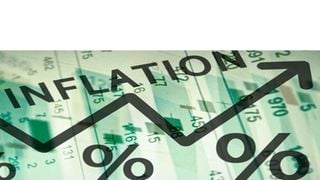
Inflation is contagious – countries can affect each other, with economic superpowers being major transmitters.
| File I Nation Media GroupOur Columnists
Premium
Tips on how Kenya can conquer inflation
The IMF defines inflation as “the rate of increase in prices over a given period of time. Inflation is typically a broad measure, such as the overall increase in prices or the increase in the cost of living in a country.”
In 1983, the Twinkle Brothers , in their song “unemployment”, had some poignant points on inflation. They sung “Times hard sir . Devaluation of the dollar make cost of living get higher. Today you live like a king sir, Tomorrow you beg like a pauper. Today you drink wine like water, mind tomorrow you drink but water.”
And indeed as they suggested ,inflation is one of the most, if not the most ,perilous economic problem any country can face .Tackling unemployment is important . And so is under-development.
However, tackling inflation becomes more important for several reasons . First ,it impacts almost everyone – rich and poor alike. Of course, high networth individuals are better insulated against inflation as they have higher disposable incomes/resources. But unlike inflation, unemployment impacts certain sets of individuals.
Under-development (as defined as ‘ the lack of adequate public investments like schools or water’ ) too, often impacts specific regions.
Inflation will not discriminate in regional or in employment terms as everyone will feel the pinch .
Second ,it is one of the most intractable problems a government can tackle . Inflation is like cancer – its possible causes are many and it can metastasize, meaning ,just like cancer, it can spread to a different part of your body than where it started.
One reason for this is that the causes of inflation are many and diverse. Inflation can be caused by demand-pull .This where consumers want a certain good or service than the seller has available . For example, if 10,000 Kenyans want to enter a gospel music festival arena whose capacity is 2,000 at a cost of 2,000 shillings, the organisers can raise the entrance charges to limit the number of entrants.
Inflation can be caused by supply-side factors like increment of cost of materials and energy .
Increment of money supply can trigger inflation if more money chases fewer goods and services .
Devaluation of a currency, being the reduction in the value of currency’s exchange rate does trigger inflation. International debt repayments also impact inflation as often these repayments are made using dollars (the international trade preferred currency) .
Inflation is also contagious – countries can infect each other, with economic super powers being major transmitters . If China closes shops for the holidays,the few available traders sell their products more expensively.
Of course, there are many more causes, but inflation forces employees to agitate for higher wages to match the rising prices .Assume one earns Sh10,000 per month and spends entire sum on rent . But if the rent were hiked to Sh12,000, the employee will demand a Sh2,000 salary raise.
Incidentally this is a race to the bottom since the very act of raising wages pumps more money into the economy, which in turn fuels a further hike of prices of key consumer goods as there is more money chasing fewer goods and services. So, how can Kenya conquer inflation ?
The right set of policies to reduce inflation, depend on the causes of inflation. Definitely the space of this article might not render justice to this complex question .
First possible approach is to increase the supply of goods and services produced locally. A net importer exposes itself to long term trouble on matters inflation .
Such a country will be chasing the dollar.If those exporters to Kenya experience supply chain disruptions like the Covid closures , that cost will percolate into Kenya. This calls for enactment of measures that attract investments including tax incentives and export promotions.
When more goods and services are available locally, Kenya will become a ‘buyers’ market’ and prices will drop.This would also create job opportunities .
Second, restructure government spending and investments. Government spends in loan prepayments as a first charge and in various investments is wasteful when the state sits on huge stocks of ‘dead capital’ assets.
These can be disposed of to repay debts and reduce pressure on the shilling as it repay international debt using dollars. For example, KBC and East African Portland Cement, which are experiencing cashflow problems, possess assets that can be converted into money. A small and efficient government can free public resources to more productive uses.
Third, a robust central bank can use its various tools to control money supply and the exchange rate objectively and rationally.
Traditionally, currencies were backed by commodities, like gold. But most modern currencies are fiat – meaning money has no intrinsic value except to the extent that its users agree is its actual value. This hands Central Banks immense power for such a currency will much depend on the reputation of the institution superintending it. The bank is left free to control monetary policy and banking reserve requirements.
- Irungu Kangata (PhD in law) is the governor of Murangá County; [email protected]





